|
The most important thing you’ll ever learn is how to regulate your emotions and self-soothe. When we learn how to soothe in moments of chaos and confusion, we have a much easier time regulating the reactions of our emotions. This can be so helpful for those who have anxiety, panic, ruminating or compulsive thoughts. The more you practice the technique that works best for you the easier it will be to call upon self-soothing and regulation in the thick of the moment. So keep that in mind that it’s not magic and may not always work instantaneously… build upon the habits!
Here are some helpful ways to practice self-soothing:
Let’s journal about: Acknowledged and identify the emotion you are feeling. How would you describe it? Where in your body are you experiencing it? What would someone experiencing this emotion need?
1 Comment
Gaslighting is a manipulation tactic perfected by narcissists and those wanting you to question your reality. If you have been on the receiving end of gaslighting then you know how awful and disorienting it can feel. You start to question if you really are TOO sensitive, you feel confused about the relationship, you’re always the one apologizing without knowing why, you feel put down and wonder if you’re good enough.
The purpose of gaslighting is to make you question yourself, your sanity, worth, and the truth in front of you by someone afraid to lose their power. It happens in relationships, personal and professional kinds, and sometimes to an entire country by top notch narcissists in political dress (ahem). It is a way for someone to deflect responsibility and instead place blame elsewhere for their own misgivings. Narcissists lack empathy and self-awareness. They fear looking inward to their own flaws and faults and instead constantly blame others for their f*ck ups. This behavior is usually learned from modeling and the person may genuinely not understand what they're doing due to the lack of awareness. That doesn’t make it ok, gaslighting is emotional abuse. A huge percentage of people with narcissistic personality disorder are unable to identify this aspect in themselves. Do not bother reasoning with them about their behavior. You will only be left feeling more confused and down. Instead look for these: Gaslighting Red Flags: -The person lies outright (sometimes quite obviously) -They deny truth, even if you have undeniable evidence or proof -They try to guilt you -Their actions and words don’t match up -They wear you down over time and throw in compliments (back handed or straight forward) to confuse you -They say you are crazy or that other people in your life are -They try to isolate and turn you off from friends and family by speaking poorly about them -They are projecting (ie: the partner who always suspects your cheating but is the one who stepped out in a way that is making them feel shameful) There is no winning in this type of dialogue, relinquish the need to be right in these arguments and focus on how you feel, stay clear. Seek a trusted person and therapist to speak to about the way you are being treated. Set and hold clear boundaries, choose to not engage when they behave this way. Try to stay calm and listen to your inner voice! The gut is so often right when it comes to gaslighting because it just feels wrong in your body. It is covert emotional abuse and may be hard to recognize at first but if you listen to your gut and look for the signs it will be easier to spot. Keep in mind that this behavior is never about you! This signals pain and work to be done in that person. Work they may never do, so keep the focus on what you need. Of course the love you have for them does not disappear but let the love you have for yourself be stronger than allowing this type of disrespect and disregard for your emotions. (Sadly, there can be domestic violence where gaslighting is happening, please make sure to be safe and to always have a safety plan of where to go and who to call should things escalate. Please seek your local resources or call the national domestic violence hotline at: 1(800) 799-SAFE (7233) or visit thehotline.org). Let’s journal: How do these dialogues make you feel? Are you being told that this behavior is coming from love? Have you ever witnessed this behavior in others, childhood or otherwise? What boundaries can you set around communicating with this person? There is also the issue of racial gaslighting. This is tactic used to avoid looking at inner racist shadows in oneself. It may sound something like: oh it's just a joke, I'm not a racist. I have BLANK-minority friends. Or blatant denial of the existence of racism. Hey guys, it's Rox! I hope your week is off to a good start . I just wanted to check in and let you know that if I'm going to be posting selfies more regularly than you'll probably start to see that I am an OUTFIT REPEATER.
As a recovering shopaholic who has been on a path of conscious living for the past 3 years, I've found integrating slow fashion into my life to be harder than I hoped it would be! Finding ethical brands made with sustainable fabrics and practices is not as easy as hopping into a Topshop (my fave of fast fashion) to find a fresh look. BUT I've been doing it and loving it. I love finding different ways to wear the clothes I already have. Finding new brands to obsess over and getting back into thrifting. (My teenage self LOVED thrifting vintage graphic tees on Melrose.) After learning about the environmental impact of fast fashion, I mean there was no turning back for me. As an #HSP who feels too much, the guilt is overwhelming and for a while I just found myself not able to shop at all. (First world problems, I know). I see style as an extension of who I am and how I feel. I believe that dressing well makes you more confident from the inside! So get used to seeing me style the same clothes in different ways. I mean if it's good enough for the Duchess Catharine, it's good for me. I'll also share with you the brands I've found and researched so far (tagged a few in the pic). As well as other sustainability hacks to make transitioning into conscious living a bit easier for you. We are at a crossroad, we can return to the old way of life, filling our home with trash or move toward a new path filled with renewables and conscious consumption. Some questions I ask myself before making a purchase: 1. Do I actually need this item? 2. Can I find a sustainable-ethical version of this? 3. Will it work with the clothes I already have in my closet? 4. Will the fabric and make of this item last me a long time? 5. Can I style it in different ways to extend the life of the purchase? If the answers are yes, I will buy the piece with no hesitation. We can't always thrift or find the perfect staple piece that is also made sustainably, but I'll ask myself these questions and if it is a good quality item that I know will get use from then I make the decision to purchase it anyway. I'm going to focus more this year on thrifting and shopping second hand first. I also like to sell my clothing back on Poshmark instead of throwing them out. Of course, I donate what does not fit into a resell category. I hope you follow me, ditch fast fashion, and your fears of being caught in the same outfit twice Sometimes our feelings are so big and powerful that we want to avoid them. However, in doing so we numb ALL feelings, even positive ones like joy. There are the classic ways of numbing like drugs and alcohol to the more seemingly harmless behaviors like watching TV, binge eating, eating junk foods, scrolling through social media, or watching hours of YouTube videos. Anything that you aren’t doing with intention as a way to TUNE OUT. It isn’t that these are “bad” behaviors, just that it can be helpful to recognize the feeling behind them and that you pay attention to why you’re doing them so that you can hear what your inner voice is trying to communicate. Are you really hungry or are you feeling lonely? Will eating a bag of chips or spending 2 hours on TikTok alleviate this feeling? Most likely not, but it does hush it down. Our inner voice needs attention and care just like a child to be fully cultivated and active. It is what directs us and keeps us authentically on the right path. But we’ve learned to not spend time with our feelings. To pour a glass of wine at the end of a hard day rather than take 15-20 minutes to journal or mediate on uncomfortable feelings that came up. Why? Because we think it will be easier. Because it can be really hard when you’re feeling down to DO SOMETHING about it. But the more you ignore that voice, the further away you get from your authentic self. If we lean in we can find the root and make changes in our life. That’s scary too, you’ll have to become accountable to yourself! Once you KNOW something it is really hard to ignore and UNKOW it. But you can do hard things and in doing the hard thing, your life flows more freely. When we numb to avoid the pain it becomes difficult to recognize any of our feelings. Feelings like anxiety are an evolutionary trait to protect us from danger. If you felt NO ANXIETY all the time you might get in trouble. There are certain times when it is appropriate to feel anxious or nervous. And of course, if we feel nothing than how can we feel contentment and joy? I’d like to leave you with a journal prompt to get you thinking about how you take care of yourself so you can be more aware of what you need as you become aware of your own numbing habits. Let’s journal about: NUMBING Think about the last time you had a really tough day. What did it feel like when you got home? What feeling/s were you trying to avoid? How do you soothe yourself when you have uncomfortable feelings? Image from pinterest We hear about projections in pop culture often in jest, a way to make fun and decrease responsibility for the behaviors we don’t like, by allowing us to reject them outside of ourself. I don’t want you to think of projections as just psychobabble. From birth to the present moment, the world becomes a mirror for the shadow aspects of self. These aspects show up mirrored back in people and situations as it is easier for our fragile ego to see. But rather than be grateful for the light they shine we feel triggered. If you have been triggered by a projection it might feel like: annoyance, resentment, disrespect, or even disgust. A strong feeling of whatever “THAT” trait or situation is does not belong in me. NO WAY, NO HOW!
Looking at our projections help us see the areas in our life that could use growth. The parts of self we have rejected and so judge in others. If we pay attention, projections illuminate the shadow self. After years of pushing away and rejecting this aspect it will be difficult to notice. It feels instead that the person or situation triggering you is to blame. You may find it difficult to see in yourself. But sit with it! Getting quiet and allowing your subconscious to be brought forward is really necessary. One way I like to do this is, is by listening to binaural beats in a theta frequency. Try looking for theta tracks on Spotify or YouTube, both have plenty of options. I personally like the Binaural Beats: Theta Brainwaves playlist on Spotify! Projections show us our shadow and reparenting the shadow leads to more authenticity. More authenticity leads to more contentment and a significant decrease in mental health symptoms. So think back on the last time you felt really triggered by something or someone. The last time you had that really guttural ego kick. I will leave you with a journal prompt to help you think back on this. Let you shadow come through, growth is uncomfortable but SO SO worth it! Let’s Journal About: Projections When was the last time you felt triggered by a person or situation? What was the core issue of this trigger? What did it feel like? Has there ever been a time you acted the way this trigger made you feel? Can you link it to a memory in childhood? (image from Pinterest) In Jungian psychology, shadow refers to the unconscious aspects of self that the conscious self does not identify with. We are ruled by these unconscious shadow aspects and allow them to run our lives when they are not in our conscious awareness.These are often parts of self that makes us feel sad or bring up shame. Shadow aspects could be parts of self that were rejected in childhood. So we learn to protect ourself, repress the feelings, hide our wounds, and in doing so hide from our most authentic self.
Shadow leads to subconscious limiting beliefs. For example, when you were little you may have wanted to be an astronaut. Maybe you were a curious child and authentically in tune what made you feel good and you shared this with a parent or a school teacher who responded with “oh that’s a lovely idea, but you have to be REALLY smart to be an astronaut”. Oof that stings! Your ego feels wounded and you push back that child like authenticity and squash the intuitive voice that told you what YOU wanted. You form a limiting belief around the fact that you are not smart and certainly not smart enough. You may stop trying in school, wanting to protect that fragile ego from failing and proving it true. You hide the pieces of yourself that know you can do more or well. You stray far from your authentic self and you begin to view that trait negatively outside of yourself. Becoming triggered and looking down on those who do well in school or work hard at it. That’s your shadow, that little piece of your soul living outside of yourself. Shadow becomes a part of our personality and it greatly impacts relationships. As these shadow selves are formed during attachment years we are also learning about how to show up relationally and what to hide. For example, maybe you had parents who didn’t have time (or know how) to play with you. You may have tried to get their attention or asked dad to play and heard, “not right now” but right now never came. So you repressed parts of yourself that sought connection. You wiggle into your shell and deny the parts of self that need play. This person may become a work-aholic and struggles with finding joy activities. Or they may find it difficult to trust others without fear of being disappointed. Uncovering your shadow can be uncomfortable work. It takes quiet self-reflection and effort to notice these dark parts of self. In therapy you can work on identifying these shadow aspects, the core beliefs that they formed, and working to reparent and heal these aspects as you reintegrate them into your conscious personality. When we can make them conscious we begin to shift these limiting beliefs into a more balanced neutral view, allowing it to be reintegrated into our personality. In doing so, you feel more confident, have higher self-worth, live more authentically and most importantly see a decrease in trauma symptoms such as depression and anxiety. I will leave you with this journal prompt to get familiar with your shadow. Sit in quiet reflection for 15–20 minutes and then journal what your subconscious shows you. BE HONEST with yourself. You can work to reintegrate this aspect back into your personality in a healthy way, but only if you become aware of it. Let’s journal about: SHADOW Is there a trait you feel shame about or judge in others? Someone/thing that makes you cringe? Can you link that to a time you behaved this way? What was the response you received? There are millions of people around the world who struggle with disease like depression and anxiety. Millions of people united in their pain and united in their silence around it until recently. As humanity’s consciousness awakes we have become more vocal. We express our thoughts freely on twitter, we echo #metoo, and shout back against racism and all the ism’s on its back. As we wake up, we begin upon a path toward unlearning the patterns that no longer serve us well.
To be authentic is to live truly. Though living true is not an easy thing to do, the more I do it the better I feel. And so do many of my clients who struggle with depression, anxiety, and trauma brain. Just think of all the messaging you receive from birth. The programming you get from society down to well meaning parents. The covert and overt messaging of who to be and what to like. From birth you’re learning all the things it’s unsafe to be. As we grow we discover that some of those things actually fit better with who we are. That if we make decisions from a place of honesty and empathy we are happier. I believe that by following the little voice inside your head and living more intuitively you serve better in life. That the more true you are to you and what your purpose is on Earth the easier your path unfolds. While flowing and serving the people around you in a much better way. The Persian poet Rumi says, “When you walk along the way, the way appears.” I read it as the most beautiful, concise way of saying: LIVE AUTHENTICALLY. So why don’t we do it? It sounds SO easy right? Just do what you want!! SEEK PLEASURE AT ALL COSTS! No, this is not a hedonistic point of view. Living true comes with respecting everything around you. That is living in worth and coming from a place of truth. One of the biggest reasons it is so difficult is that we have hundreds of subconscious limiting beliefs bubbling around the authentic self. It takes self-reflection, honesty, and meditation to hear these beliefs. Some are loud and recognizable but many are those deeply ingrained, tiny little nuanced things you picked up along the way. Therapy can be a great way to get to know your authentic self. You hear your ideas bounced off another person, and you see yourself reflected back in someone who doesn’t know you outside of that room, and is not invested in anything other than your well being. You can figure out who you want to be. A great way to boost that learning and unlearning is to pair it journaling. Pulling that voice out and amplifying it loud enough for you to discern is a big chunk of the work. The other comes in listening to it every time it speaks. These intuitive moments don’t often make sense. If you miss it or you doubt it that’s ok. Don’t beat yourself up, just learn from it and listen the next time. These intuitive messages will get louder until you hear them. A lot of clients wonder about the difference between anxious thoughts vs. authentic thoughts. These Intuitive hits feel clear and calm, just a pop of awareness maybe fleeting. While Anxious thoughts feel shelled from a place of insecurity and fear. This is a good way to determine which is which. When we ignore this voice we can be left feeling depressed, anxious, far from our true self and calling. Living authentically and following these moments of truth reflected back you will lead you to be more open. More open to give and to receive. Id like to leave you with a journal entry to get to know your authentic self a little better today. Let’s journal about the AUTHENTIC SELF- I’d like you to find time to get quiet. 15–30 minutes of sitting quietly, maybe after a bath or shower. Sit with your thoughts, allowing them to come without judgment and redirection while thinking about the question, then write: Where do your thoughts go during the day? What do you think about the most? Can you do a little more of that everyday? How can you incorporate it? First, I’d like to acknowledge my place in this. I have been born with the immense privilege of white skin and light eyes. I have not lived with the injustices that Black people in America (and worldwide) experience daily. I have shoplifted from stores, walked into abandoned homes, I’ve been pulled over by the police countless times as a reckless teenager and yet, I managed to walk away alive. Though I have not personally known what it feels like to always be in fear that you will be targeted because of your skin, I can try to empathize. I can imagine the sort of trauma you’d live with everyday when you are constantly afraid that you will be in danger because of your skin color. The pain it causes, the behaviors you take on as your brain tries to protect you while you process the pain in a culture that has been gaslighting you to feel as if you have none and no right to, because slavery was abolished many moons ago. As if when we made things illegal the pain disappeared like magic into thin air. As if the systems changed with the law to create true equality and not instead continue to target humans based on race.
As a culturally sensitive and empathetic person I truly believed that I understood this. I felt my work in community mental health and the foster care system made me an ally and an advocate. I grew up as a daughter of an immigrant family. An immigrant family from an Islamic country. Oh, I have felt the racism rampant in America. I have been othered and ostracized at times and felt that my experience was similar. Mostly unaware of the privilege my skin tone has given me. The usual response I get from White Americans when they become aware of my ethnicity is, “oh wow you don’t look Iranian. Are you half?” As if people can only be boxed in to categories of race. As if I had looked like my darker ancestors I would not be valued but clearly I must have had SOME European in me making me worthy. There are MILLIONS of Iranians with pasty skin and green eyes like me. But I realized that this was a mistake I had been making too. That I had been saying “we” when I referred to the Black Lives Matter movement as if I was not hiding safely behind my own white skin. I had been equating my experiences with those of the Black community and that was wrong and totally unfair. They are vastly different. This week I took on the #amplifymelantedvoices challenge on my instagram page. I vowed to stay silent, not promoting my own content or voice. I began to follow more accounts of black men and women in my communities, sharing their work and hoping to teach my followers, my family and friends, about what it means to be an ally. I didn’t realize how much I would learn about myself and my own racism in the course of a week. I began to read Ibram X Kendi’s book How to be An Antiracist. I looked back on experiences and conversations I have had in the past. My eyes truly open for the first time to how deeply ingrained these issues can be. I felt the white guilt for having sat at tables and broken bread with people who I knew to be racist. For having bit my tongue or laughed at their “jokes” for fear of being other-ed myself. I feel ashamed for not speaking up then but I will now. I felt I had understood what #blackoutTuesday was meant to be when I shared that I would be muted on Sunday evening. However, come Tuesday morning my feed became filled with little black boxes from everyone, their mom, and their dog’s IG accounts, I was so confused. I posted a blackbox, then deleted it, then posted it again, then deleted again and chose to stay deleted as the message became clear. It was an opportunity to AMPLIFY MELANATED VOICES not to wash them out with black boxes. I continued instead to share helpful resources, charities to donate to, and petitions to sign to find some semblance of justice for those who have lost their lives. I cried with clients and friends, I attended a peaceful protest, and continued to expand my knowledge on how to be an antiracist ally. Meanwhile, I saw some white friends and brands go back to business as usual, posting selfies and promos of lip kits (not her specifically her- you know what I mean). This enraged me. How could people just move on? Well, I figure they may be the same people who just up and decided that they were over Covid too. I hope that they realize that BLACK LIVES MATTER is not just a viral trend. That black lives matter IRL and not just on the internet for clout. That they continue to do the work PUBLICLY AND PRIVATELY. That their black box is not doing anything at all. That black people’s LITERAL lives and well being are on the line. I hope they do not hide cushy behind their white skin. Kendi writes that to be an antiracist, “requires persistent self-awareness, constant self-criticism, and regular self-examination”. This week has been the start of a true look into myself and the mistakes I have made. I will continue to do the work, I will say the wrong thing from the right place, and I will change. I will point out racist ideology or comments that friends and family make. Not as an attack but as a way to educate and begin to shift beliefs. I can and will do better. I hope that you do too. We have seen the positive change that protests have already brought forth but this is a worldwide movement that will not end until change happens from the ground up. In America, everything from our education system to our justice and police systems need change. It will be a long road with many opportunities to learn and it starts from within as do most moments of growth and change. Learning, expanding, and evolving take time. They require patience and kindness toward self and others. Our consciousness is shifting from an individual and collective space and it is important that we continue to have empathy and utilize our voices in solidarity with the Black community. I've been struggling to find the right words to say. But not saying anything at all feels like complicity. Day after day, I am appalled (though not surprised) to hear, see, and experience the racism in this country. When will it end? When will all the 'woke' people realize there is still so much work to be done? It is not enough to make this post and say a few words. I want to actively work against racism. I stand in solidarity with the black people in this country being murdered in plain sight again and again. For simply being alive. I will continue to educate myself on how this can be done. For now, I'm going to shut up and listen to people of color on what they need and what their experience has been. I share with you all again that empathy is a skill. A skill that can be taught and that can be learned. Many white people apparently never learned it. They reached the top from climbing on the backs of indigenous peoples. We will work against them and their ignorance. Racism stems from fear (and extreme hate) we need to educate each other and find communion and commonality in the human experience.
To speak on this issue and not discuss generational trauma would not make sense. They go hand in hand. Generational trauma is trauma that can be passed down through generations. This happens in all families with trauma but is heightened in families whose ancestors have been marginalized, oppressed, beaten, and killed. Resulting in younger generations to remain in the cycle of trauma though the issues have "long past". Remember unprocessed trauma doesn't just dissipate, it stays stored in the body of mothers and fathers forced to shove it deep within themselves to be able to survive. The body remembers, always. There is a ton of epigenetic research on this. How our brain and our blood literally transforms from pain and we hold trauma in our genes as it passes to the new generation. This has been occurring in black families for centuries. From being torn away from home to be shipped and sold into slavery oceans away. For modern black Americans who grew up in the time of an "official" end to slavery but had grandparents and great uncles whose lives were spent in the terror of growing up in the time of slavery. To act as if the impact of slavery ended when slavery was written out of law is a disservice to the trauma experienced by an entire people. We celebrate MLK day as if he wasn't assassinated. We celebrate Columbus day as if he didn't pillage and colonize a land that must certainly did NOT "belong to you and me". So what we are seeing now is consistent with symptoms of trauma. This isn't exclusive to black families of course. Families of holocaust survivors and Jewish families in general have higher rates of anxiety disorders. This has been whitewashed into the comedic archetype of the neurotic jew in Hollywood. While black Americans have been stereotyped as angry. These aren't just funny anecdotes. This is generational trauma. And as a society, we have been ignorant to it for too long. Justice for George, Ahmaud, and Breonna, I hope it will come. But the grief experienced by their friends and family, will not end. Please let's not allow another black man or woman to be killed for being black. Beautiful image from Pinterest. |
Roxana Karimi
|


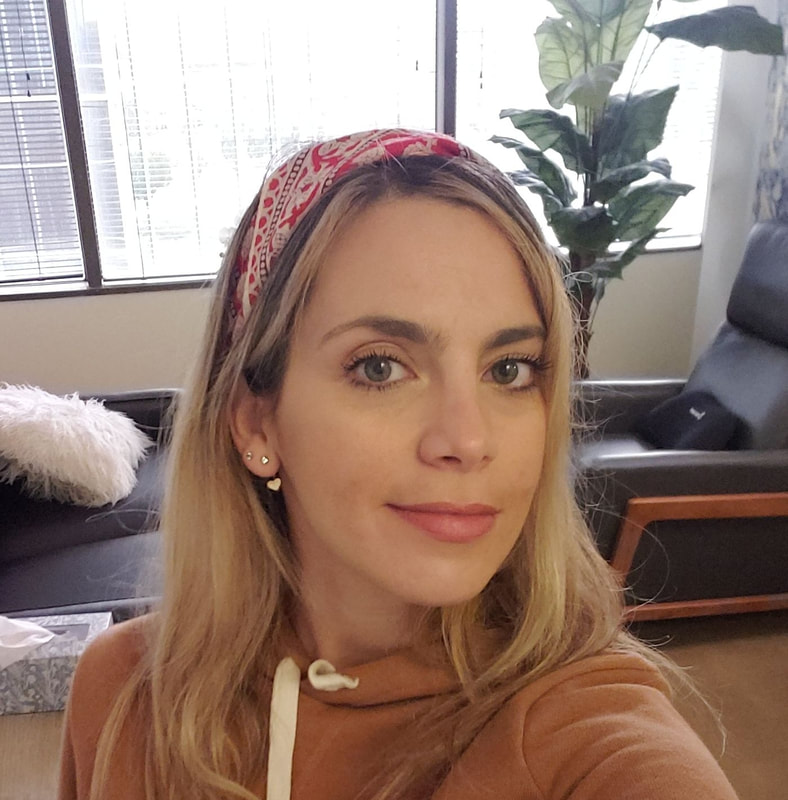


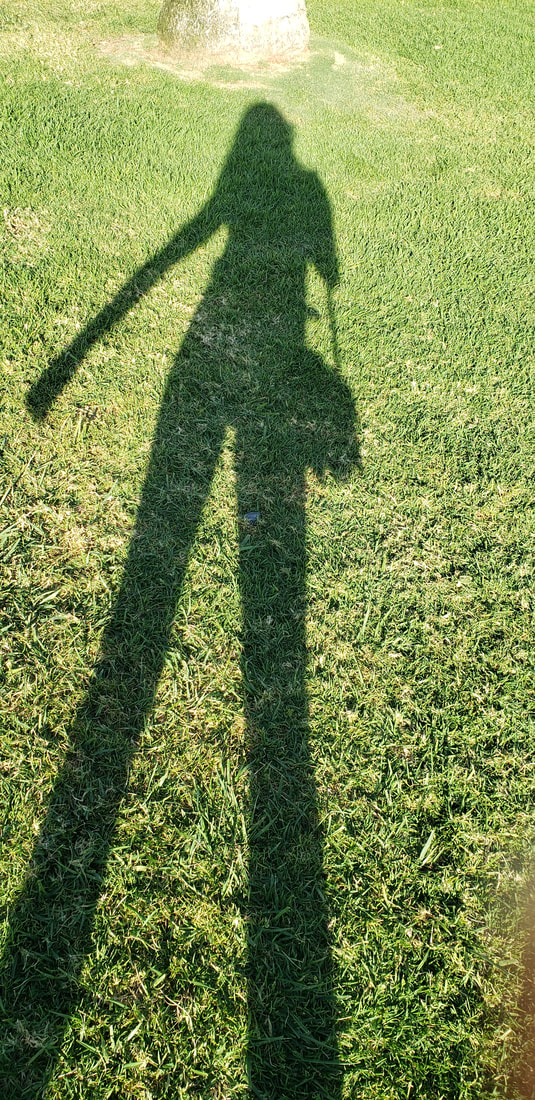
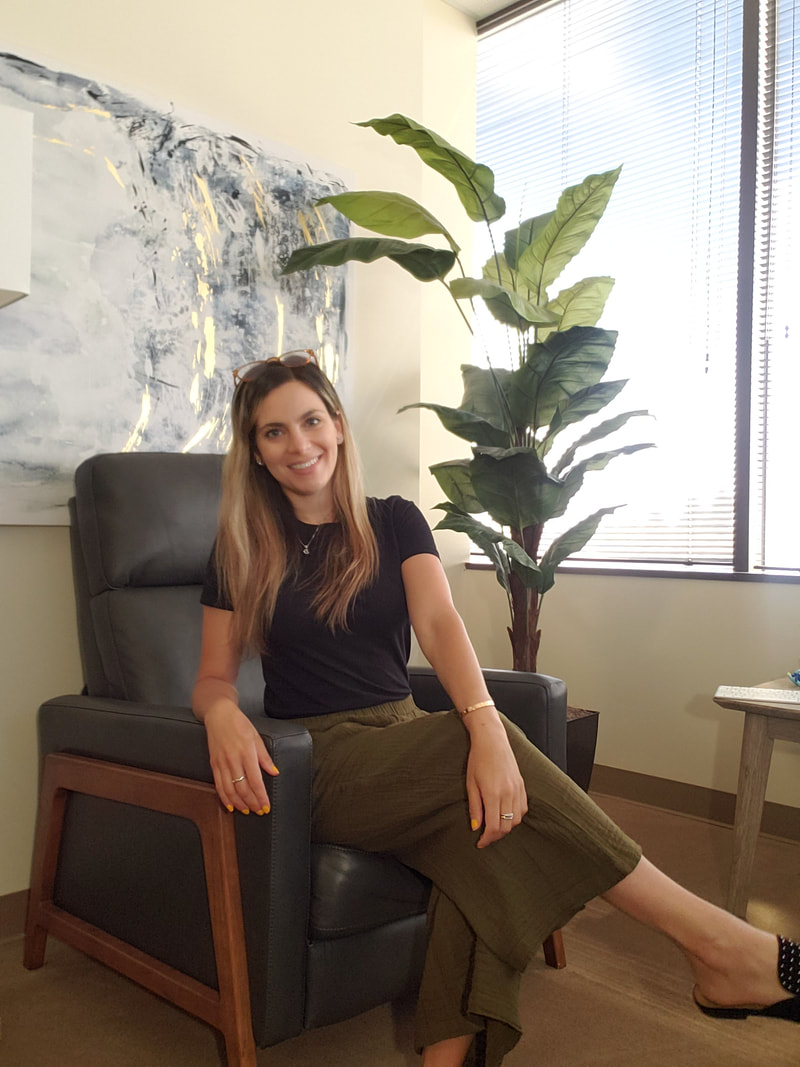
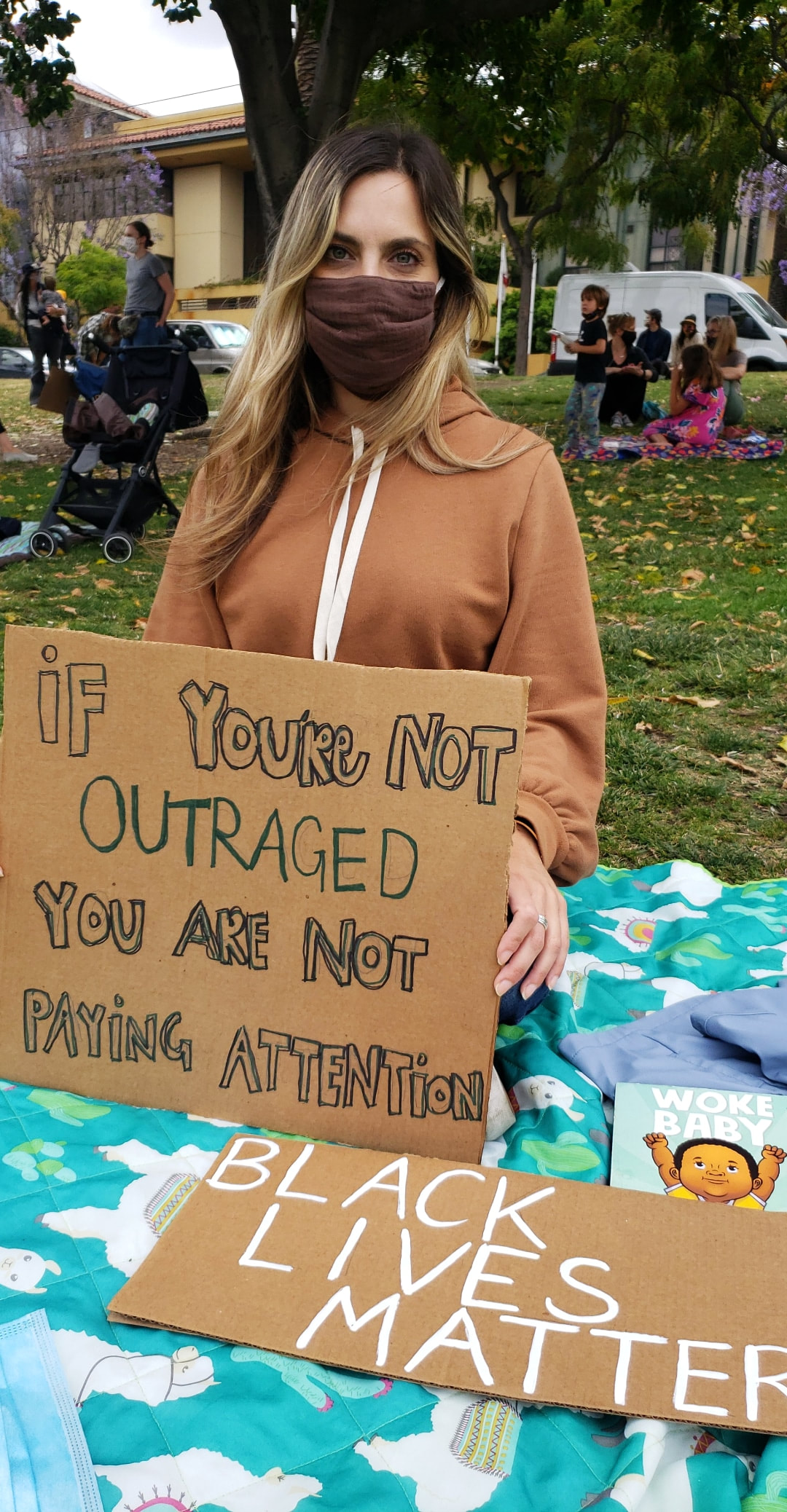
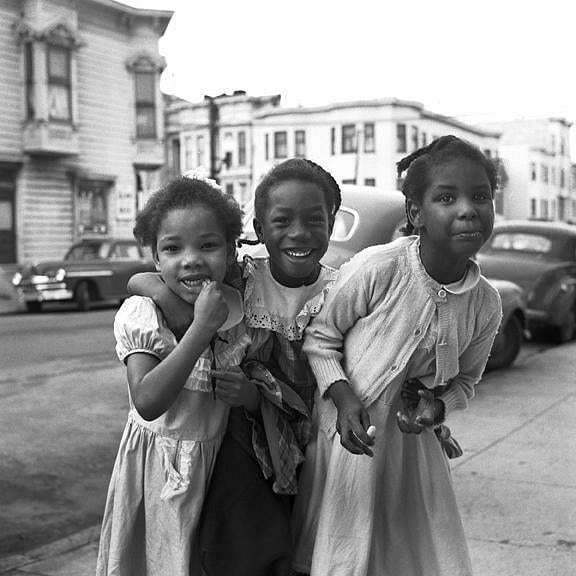
 RSS Feed
RSS Feed